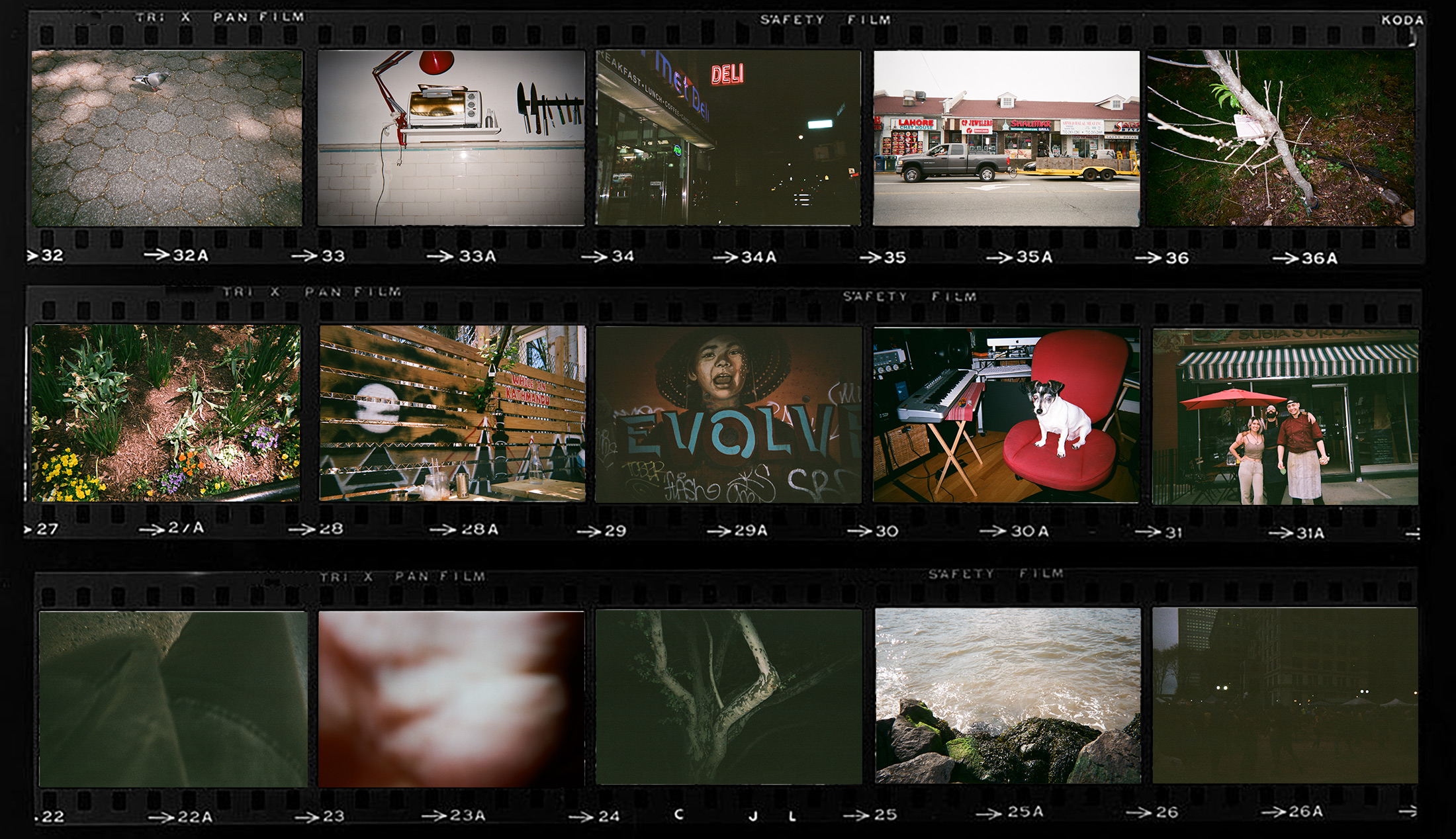“Developing Stories,” a series from Work in Progress, invites authors to carry a disposable camera and document whatever compels them—a reading, a walk in the woods, a tour of the writer’s hometown. This week we live a few days in the life of Akil Kumarasamy, author of Half Gods, and appreciate meaning in everyday moments and retrace her childhood growing up in New Jersey.

Growing up, I mostly visited the Jersey shore, where you can find exotic plastic bags swimming in the water and everything—Oreos and candy bars—fried. My dad loved it. We would make weekly trips to the beach. I always wanted to be elsewhere.
Here is the scum and water from the Hudson River, which I imagined crossing at night to the oasis of New York City. Bodies of water have always been a form of comfort for me as well as a barrier to all the places I wanted to be.

This sign used to simply say, “Welcome to Dismal Swamp.” There were no frills, nothing fancy like “Conservatory.” And Dismal Swamp felt like a proper setting for teenage malaise.
I never really looked closely at this new sign. “Preserved open spaces” just feels like a euphemism for destruction. Many years ago when developers expanded deeper into Dismal Swamp, protesters gathered trying to protect an endangered species of owl that resided in the swamp. I doubt the owls were “preserved.”

The town I grew up in was named after Thomas Edison because of his laboratory. The museum looks like a rest station and when I used to volunteer there, I remember we never received any local visitors. They were from Alaska or New Zealand. Of all the artifacts, many tourists were intrigued by the trivia game Edison created called “The Wiz,” which was used, according to lore, to hire employees.

This tower was recently built. It reminds me of the politics of innovation, how many are involved but only a few, if even, are accredited. Edison only perfected the light bulb. There are other inventors like Joseph Swan. And history is limited, it only goes so far.

Subzi Mandi is one of the oldest South Asian fruit and vegetable grocery stores in the area. Before Oaktree Road flowered with other South Asian businesses, this was the go-to spot.

When you’re a teenager and looking for a twenty-four hour open buffet, look no further.
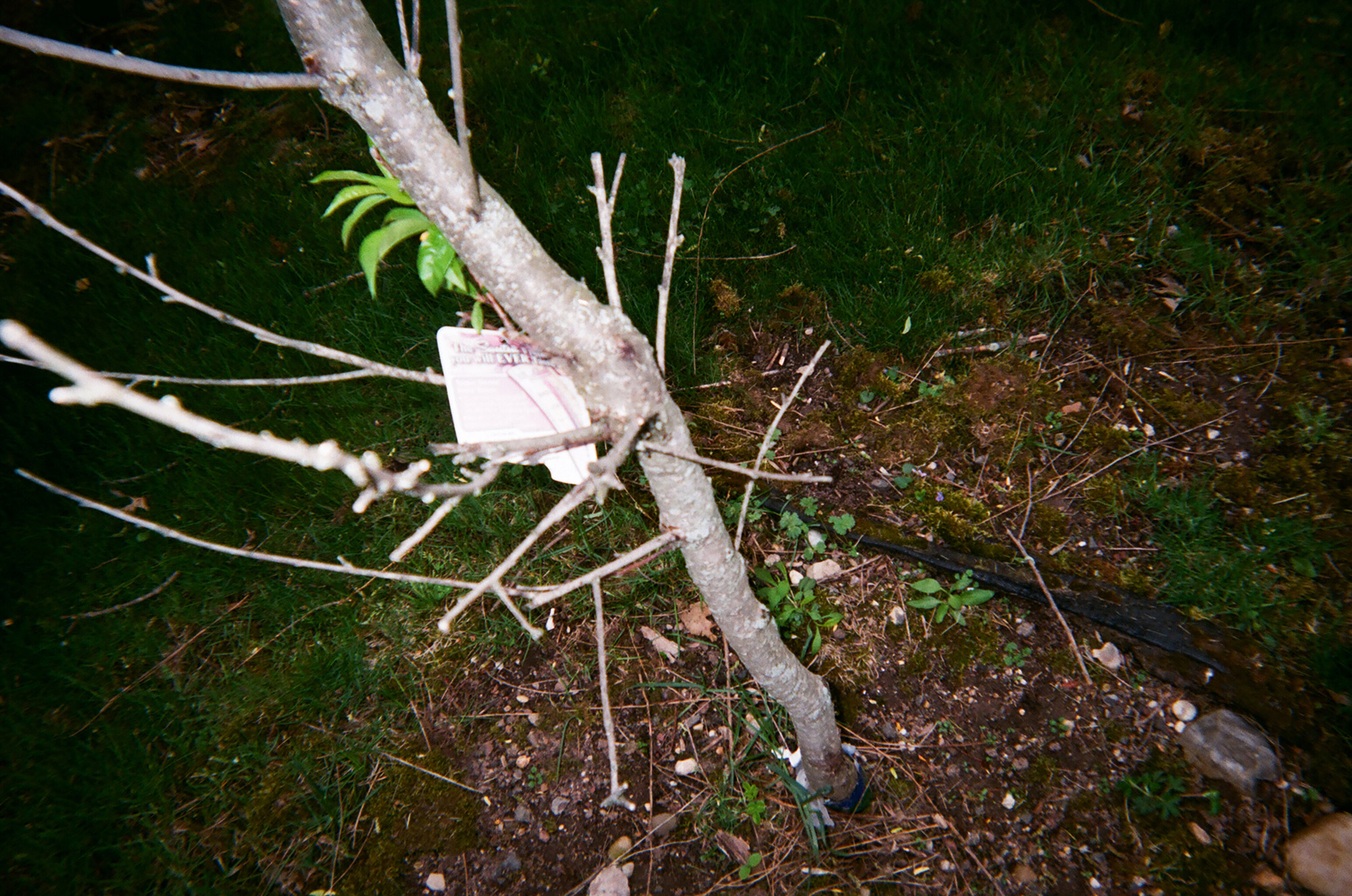
My father planted this tree the day he passed away. The tag is still on it, simply a bar code, so I’m reminded that nature itself can be commodified. I want to think of its growth and my father’s death as some metaphor of the cyclical movement of life, but I keep getting stuck on that tag.
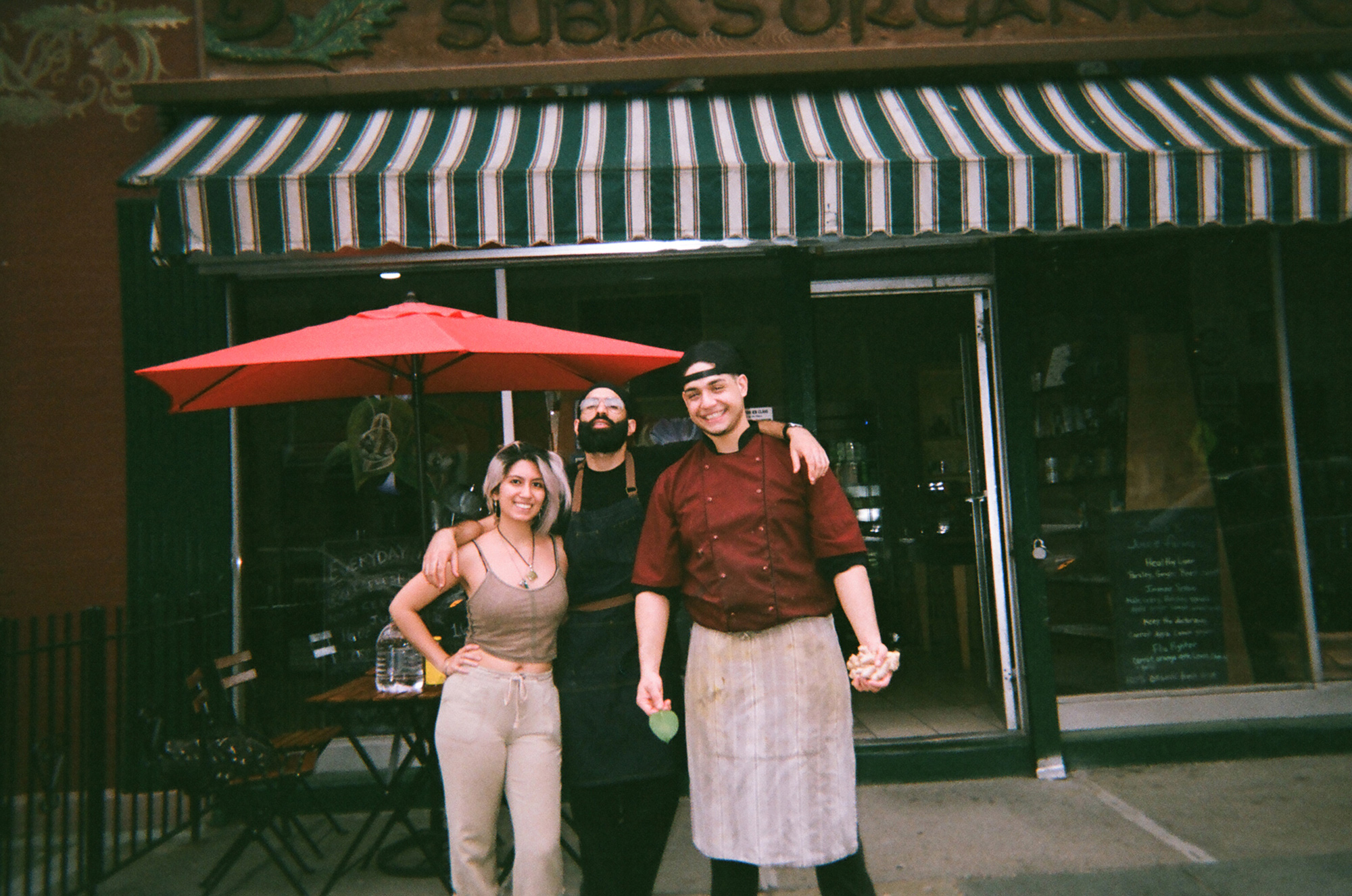
Here are the cooks (Rebecca, Raj, Edgar) of Subias, a vegan restaurant in Jersey City founded by Nilsa and Yvonne Rodriguez, who wanted to create a healing and nurturing place in their hometown. On the shelf behind the register, portraits of the Virgin Mary, Buddha, and the Hugging Amma sit comfortably side by side.
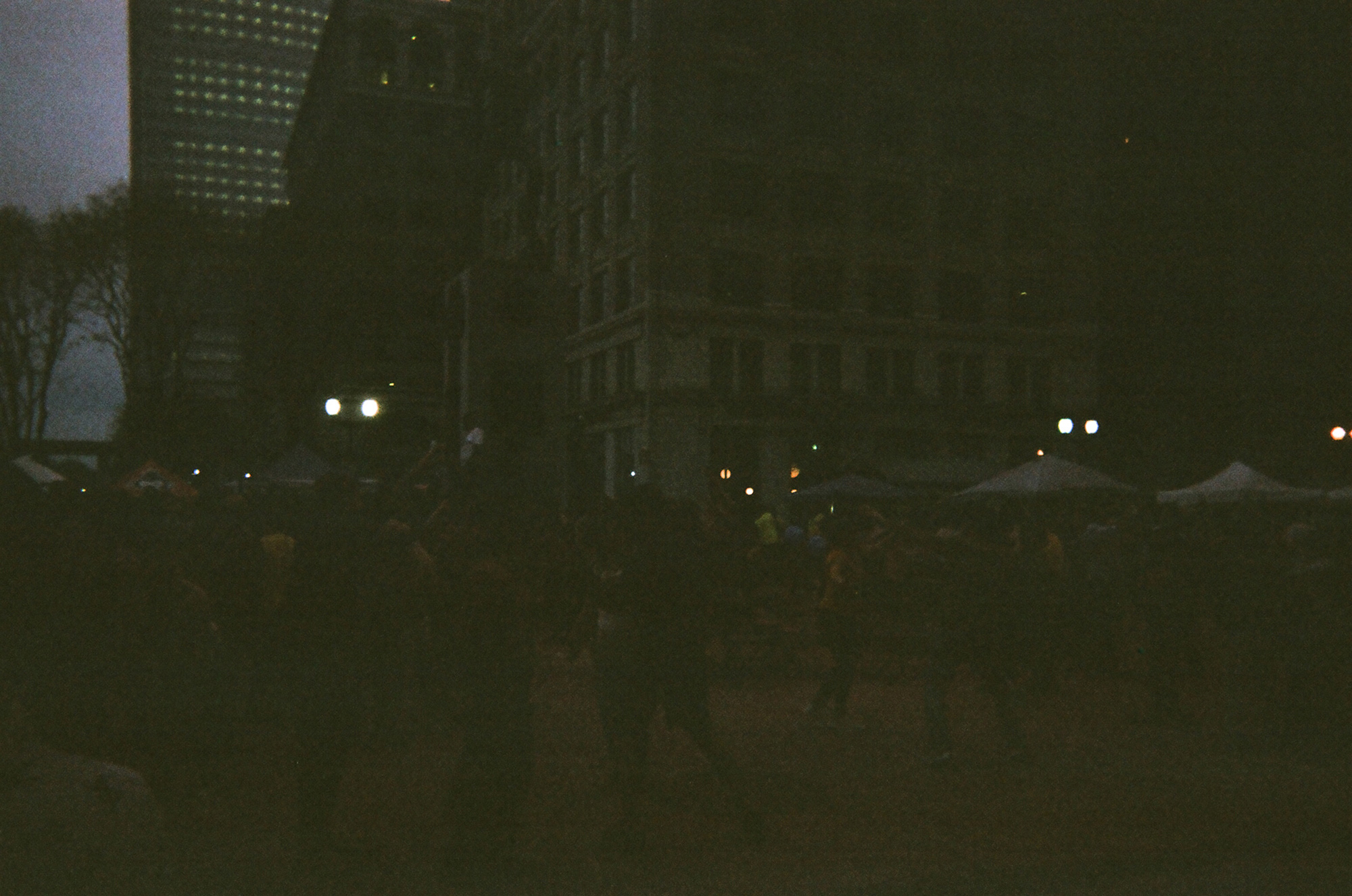
People dancing for Holi, the festival of colors, outside in Jersey City. It’s too dark to see the colors.
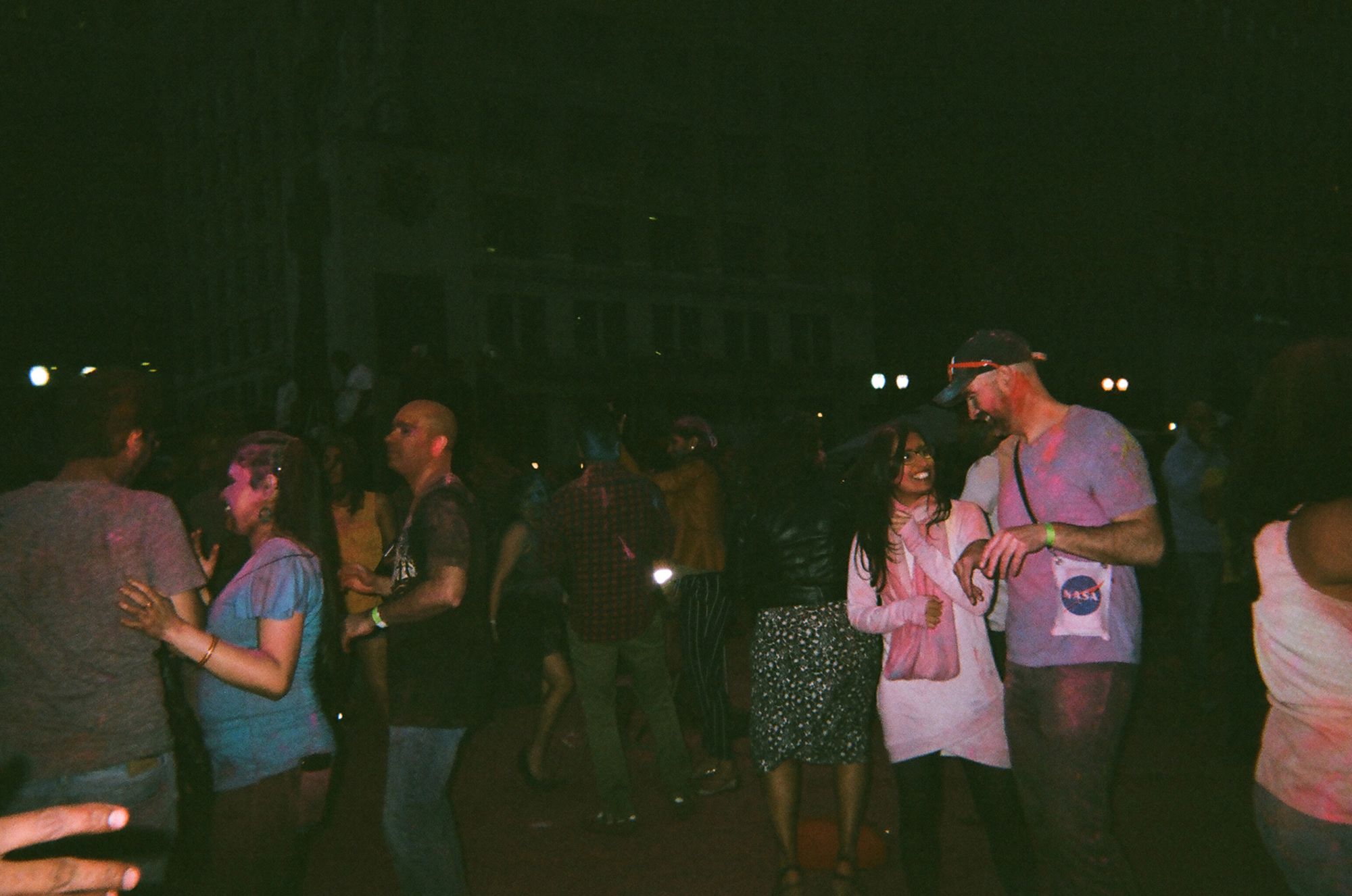
In the late 1980s, a hate group called the Dot Busters attacked South Asians living in Jersey City. Nearly thirty years later, dancing in a public square.

Eighteen years old, almost fully blind and deaf, Zealot is still playing music at the Chutney Compound.
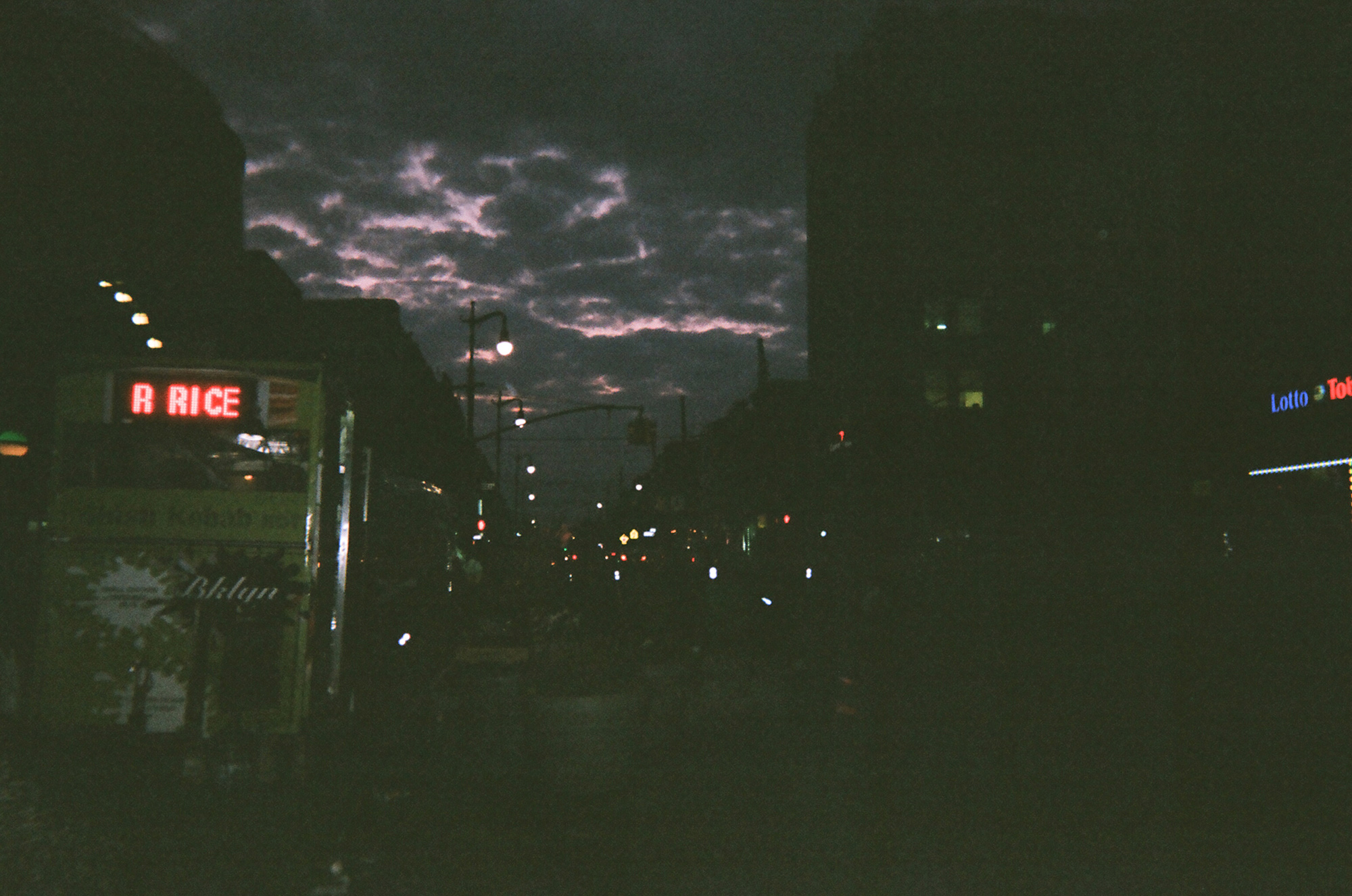
Waiting somewhere in Bushwick.
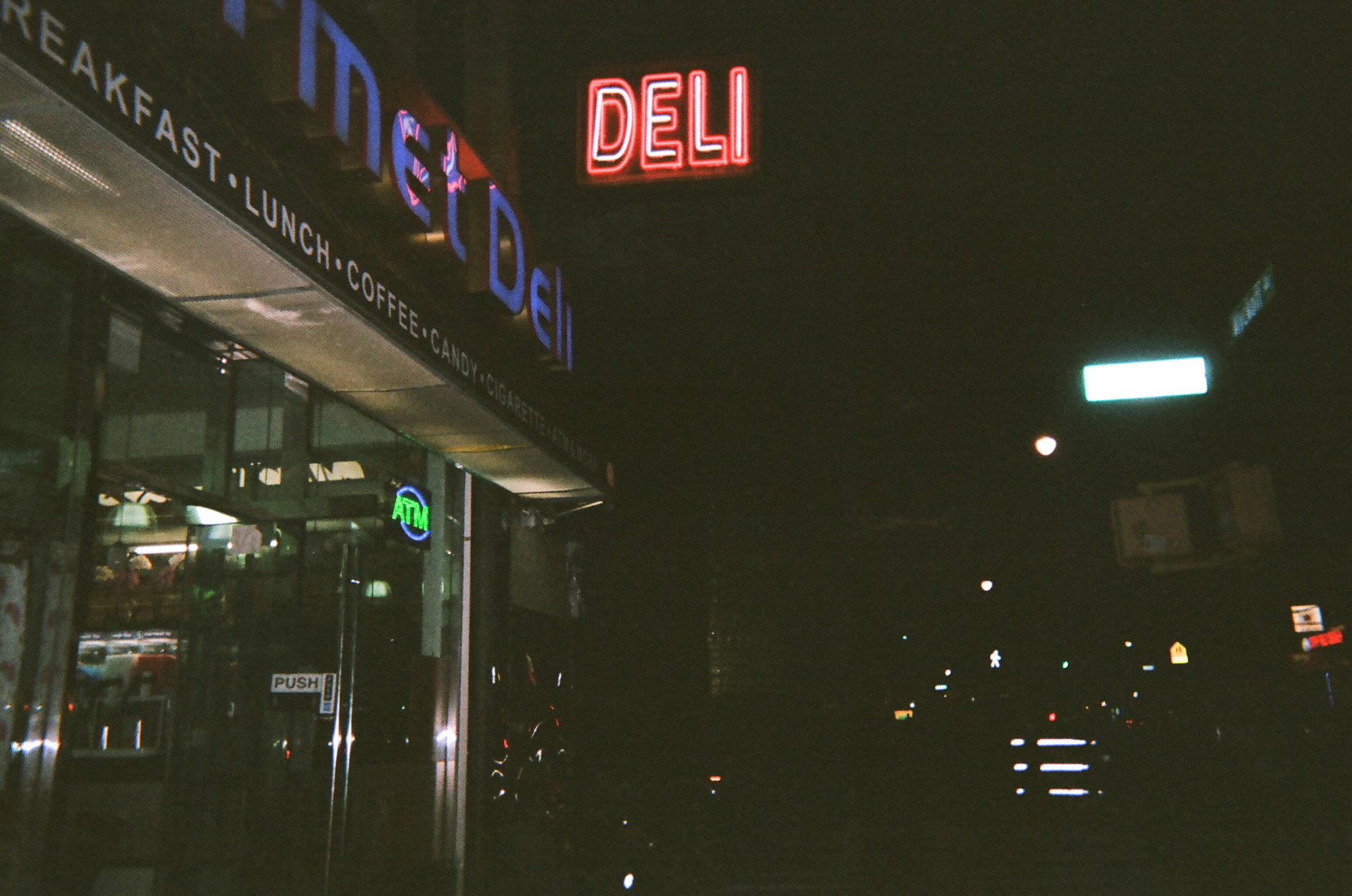
Catching an image twice in neon always feels like déjà vu.
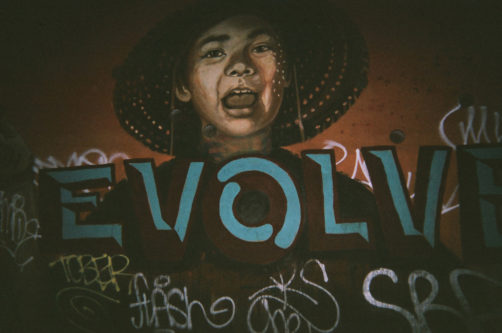
You can’t spell revolution without evolution.
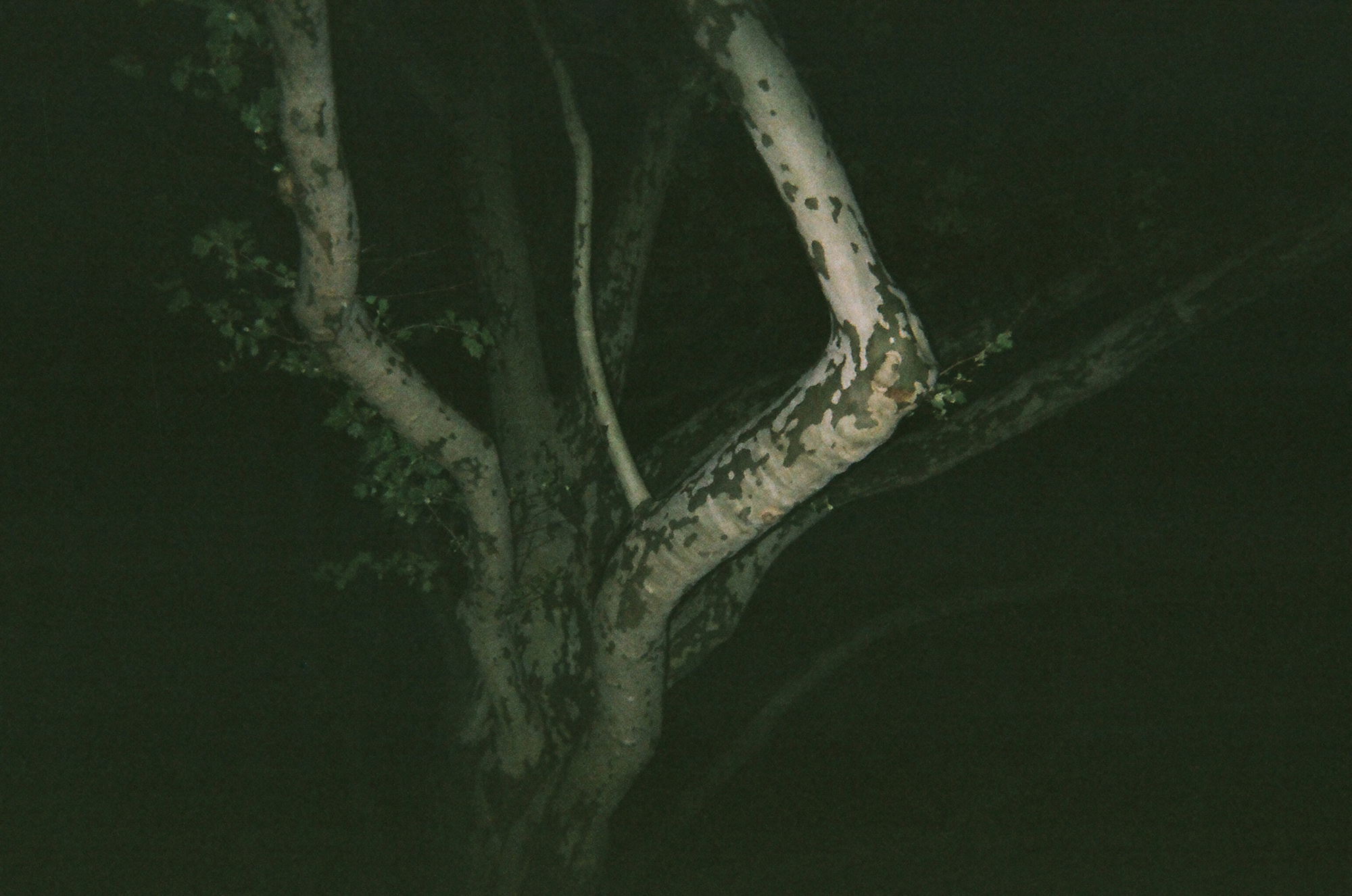
Trees are living creatures straight out of a Guillermo del Toro film.

Together these appliances reminded me of the 1989 animated classic film, The Brave Little Toaster, where five sentient appliances try to reunite with their owner. It’s a bizarre consumerist dream: the fidelity of our objects to us.
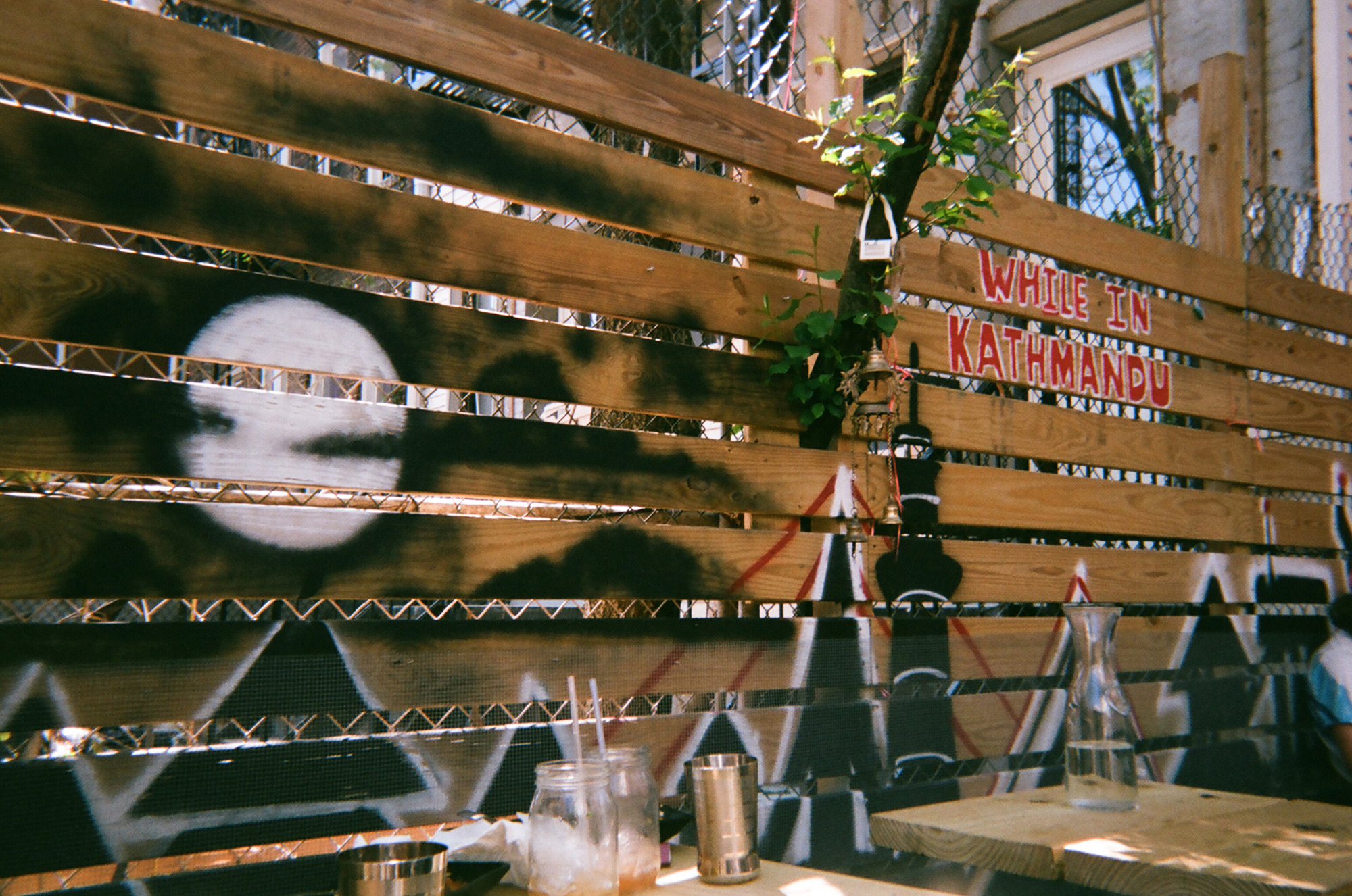
While in Kathmandu is a Nepali restaurant in the Bushwick/Ridgewood area with some great outdoor seating and food. I do like this drawing in the background, a dark fortress.
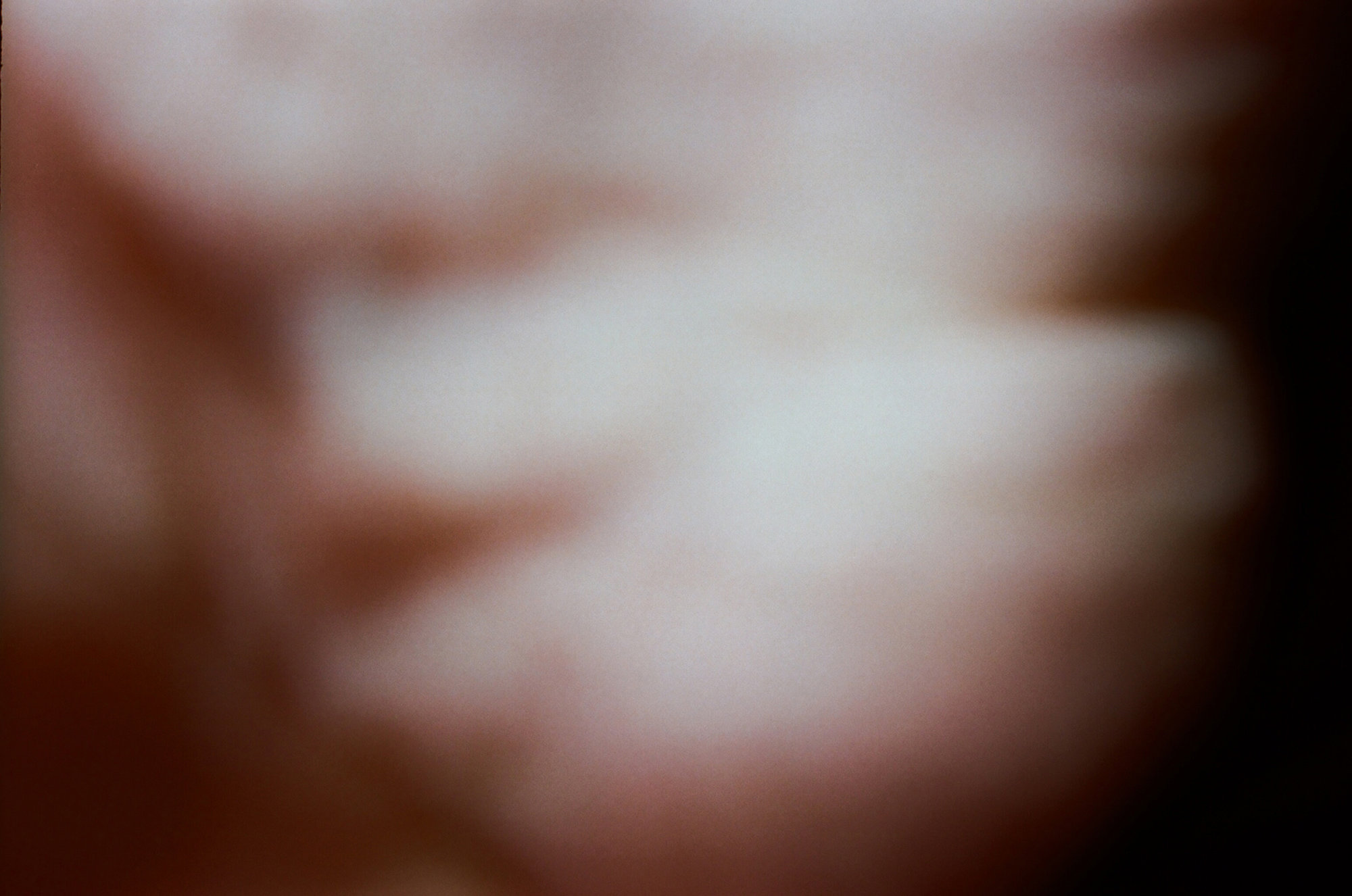
When the flash goes off in the womb of your bag . . .
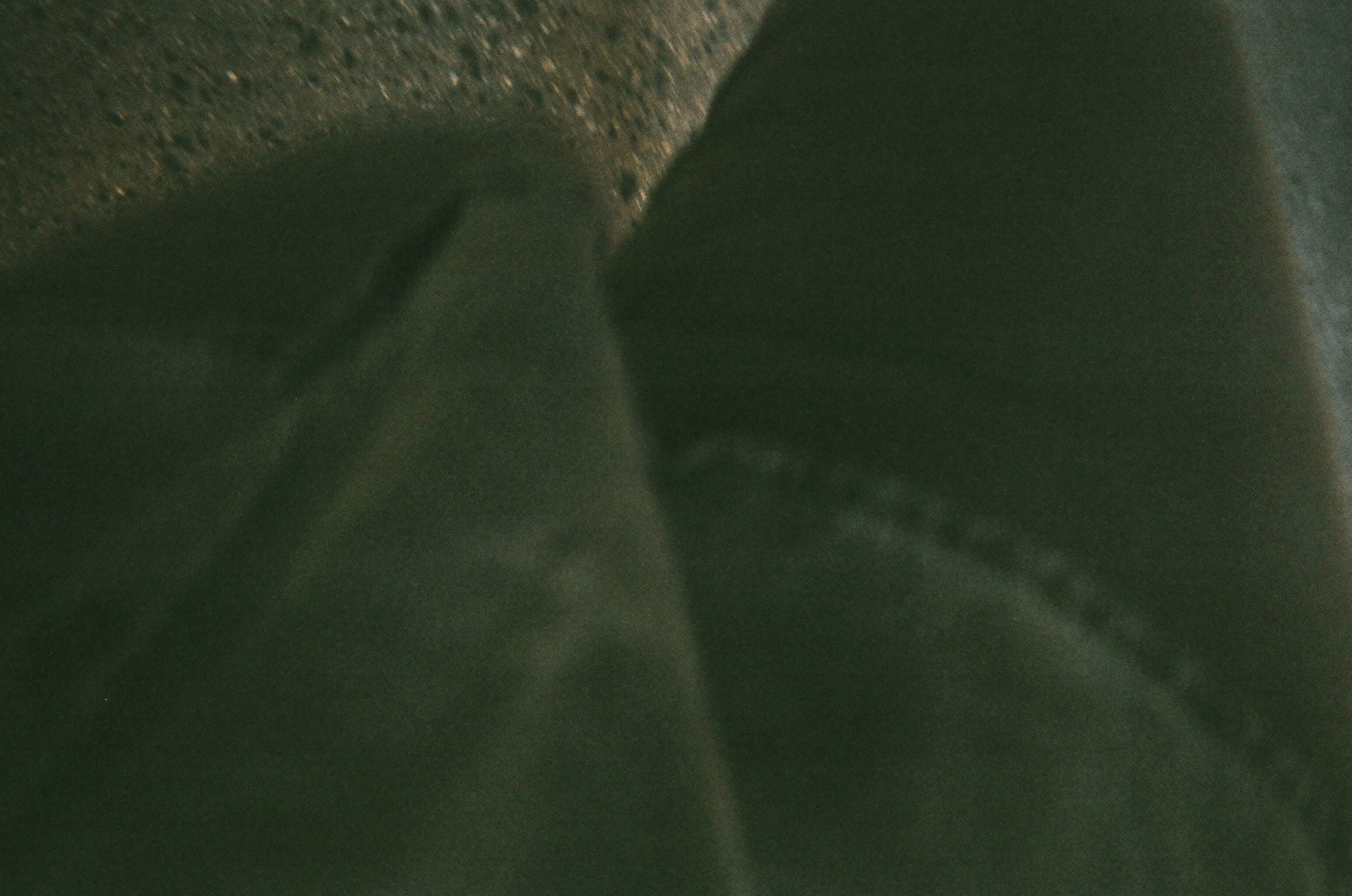
This is a close-up of a leaf. It seems to possess a sort of velvety texture.
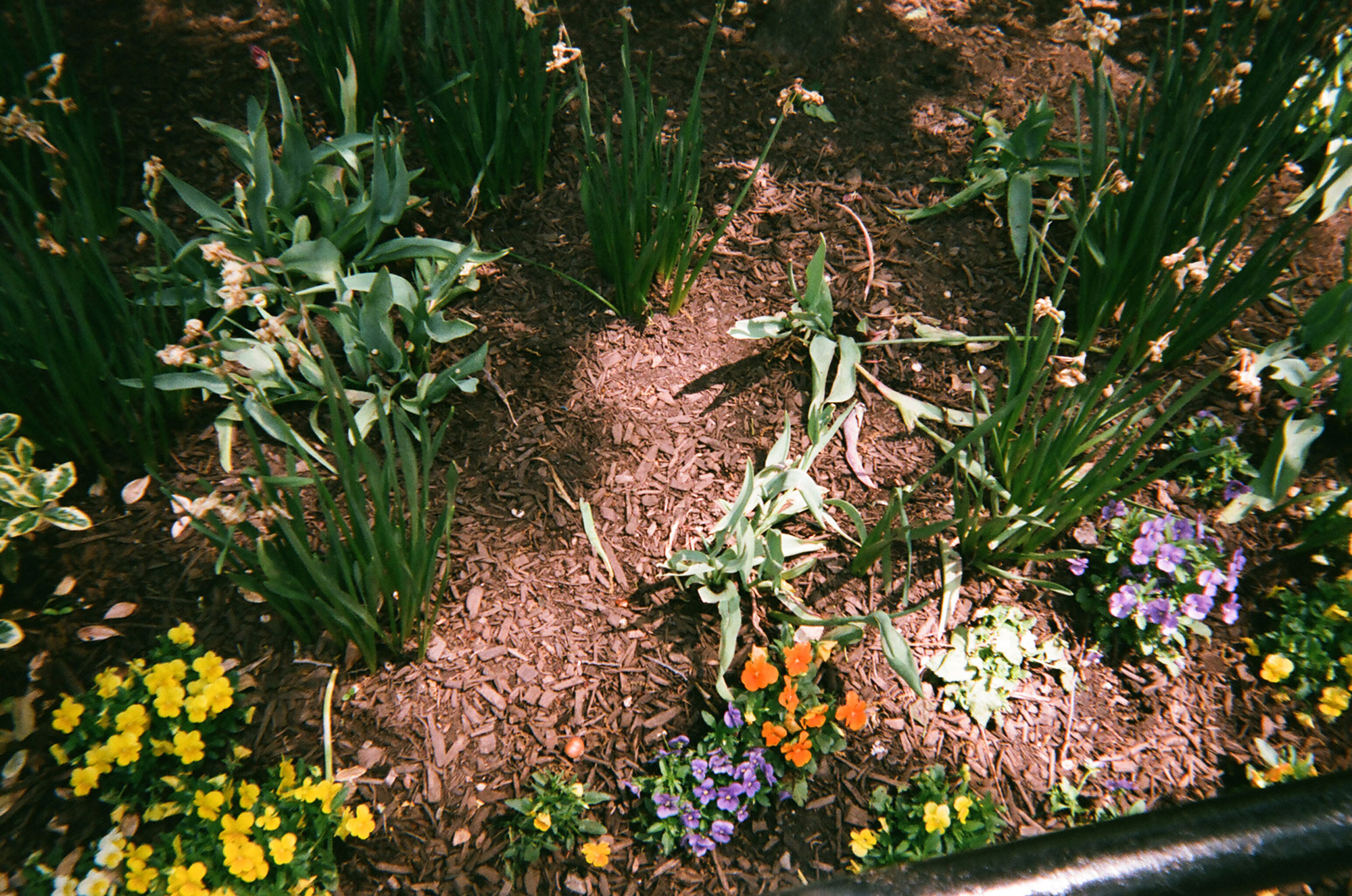
Life goes on.
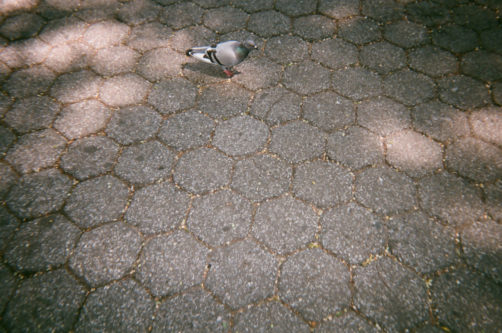
Pigeons are quite lovely. I had to leave New York and go to Norwich to rediscover them in the wild. This lone bird looks perfectly content without its flock.
Akil Kumarasamy is a writer from New Jersey. Her fiction has appeared in Harper’s Magazine, American Short Fiction, Boston Review, and elsewhere. She received her MFA from the University of Michigan, and has been a fiction fellow at the Fine Arts Work Center in Provincetown and the University of East Anglia. Half Gods is her first book.
